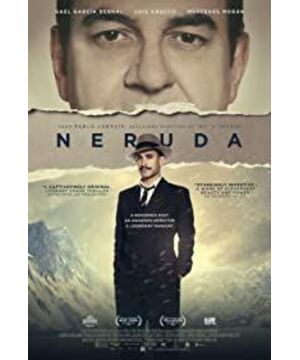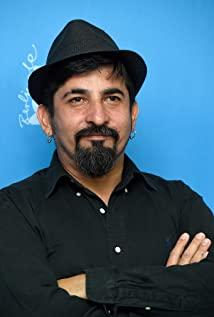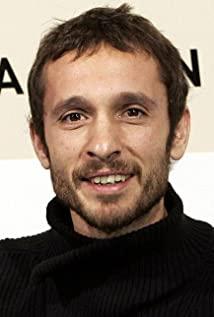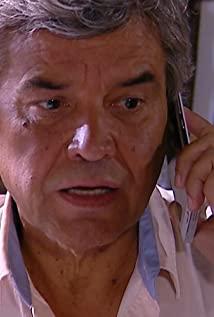In the Western cultural system since ancient Greek mythology, when people use the term "hero", it means that the reference should be like a human existence, that is, on the basis of a moderate sense of sublime, minor flaws are allowed. In contrast, our context is much harsher: to be a hero, we must first abandon our emotions and six desires—in fact, we are more inclined to create gods.
As a result, "The Hunt for Neruda" may cause embarrassing discomfort to some viewers accustomed to the Sinicized discourse and ideals of communism - what we expect to see is a selfless, self-sacrificing, hard-fought communist fighter , but did not expect to encounter a big-bellied communist poet Neruda who ignores the overall situation, lingers on women, disobeys organizational arrangements, and has some suspected petty-bourgeois sentiments.
However, according to the philosophy that this film intends to convey, all of these are not so much a stain, but rather add a layer of brilliance to the character of the protagonist: one of Marx's highest ideals, isn't it "the free and all-round development of everyone"? ?
In the title, Neruda is the one being hunted down. But through heavy montages and shaky footage, we finally learned that this was a hunt initiated by the pursuers, a blatant provocation. When he called the people sent by the organization to protect him as "you red elements", we finally have reason to believe that this great loner who was the first to gain popularity has already walked very far, and freedom is no longer a declaration, but a Practice life creed. Being held back by any title—poet, senator, even "comrade"—was a grievance to him.
This man named Pablo, like another man named Pablo (Picasso), refused to be included in the narrow social organization, they belonged to all mankind.
Every time I listen to "Imagine", I am convinced by Lennon's mind - the sense of sublime often seems to come from people who are contemptuous in the metaphysical realm; I have the urge to ask shamelessly: What kind of home are you, writers and musicians, creating some kind of superstructure that we can't see, touch, or eat?
In the film, Neruda's poems are diffused through secret mailbox after secret postbox, and sparks of fire incite the masses to answer this question in part, and we know that without the recipient, the meaning of these words will cease to exist, which is to say , the man who spends his days on the job like a headless fly, though as ridiculous and pathetic as that fictional cop, and only worthy of being rescued or pitied by a great man, forms part of the economic foundation after all.
I also think of the sentence in Faust: "People must fight for life and freedom every day, only then can they be equipped with freedom and enjoyment of life." After doing this, no matter how weak they are, they can't be considered lowly.
View more about Neruda reviews











